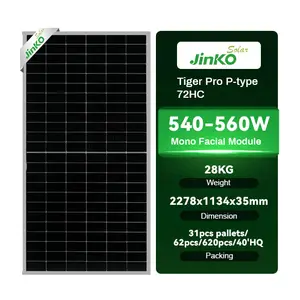Exploring Solar Cell Innovations
The realm of solar energy is ever-expanding, with cells solar technology at the forefront of this green revolution. Solar cells, the building blocks of solar panels, harness the sun's energy and convert it into electricity. This category encompasses a diverse range of products tailored to various applications, from residential to commercial use.
Types of Solar Cells
Within the solar cell domain, there are multiple types to consider. Monocrystalline solar cells are known for their high efficiency and sleek appearance, while polycrystalline solar cells offer a balance of performance and affordability. For those seeking versatility, flexible solar cells provide a solution that can be integrated into a multitude of surfaces and profiles.
Solar Cell Applications
The applications of cells solar are vast and varied. They serve as the primary component in solar panels for residential rooftops, commercial power stations, and even small-scale solar-powered devices. The adaptability of these cells means they can be found in remote locations, providing power where traditional electricity is inaccessible.
Features and Materials
Solar cells are characterized by their material composition and structural features. Silicon remains the most prevalent material in the manufacturing of solar cells due to its semiconducting properties. Innovations in materials science have also introduced thin-film solar cells, which offer a lightweight and flexible alternative to traditional silicon cells.
Advantages of Solar Cells
The advantages of cells solar are numerous. They provide a renewable source of energy, reducing reliance on fossil fuels and lowering carbon emissions. Additionally, solar cells require minimal maintenance once installed, making them a cost-effective solution over time. Their modularity also allows for systems to be scaled according to energy needs.
Environmental Impact and Sustainability
Finally, the environmental impact of solar cell technology is a significant consideration. By converting sunlight into electricity without any harmful emissions, solar cells contribute to a more sustainable future. They play a crucial role in the transition towards cleaner energy sources, aligning with global efforts to combat climate change.




































 浙公网安备 33010002000092号
浙公网安备 33010002000092号 浙B2-20120091-4
浙B2-20120091-4